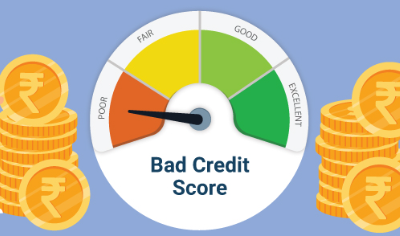Introduction :
Personal budgeting is not just about numbers; it’s about taking control of your financial destiny. In this ultimate guide, we’ll explore the crucial steps to create a personal budget that not only aligns with your lifestyle but also propels you towards financial success.
Understanding Your Finances
Assessing Income
Understanding your income is the first step to effective budgeting. Identify all sources of income, including salary, freelance gigs, and passive income streams.
Analyzing Expenses
Dive deep into your spending habits. Categorize expenses into fixed and variable, enabling a comprehensive overview of your financial landscape.
Differentiating Needs and Wants
It’s essential to differentiate between necessities and luxuries. This clarity ensures that your budget reflects your priorities and values.

Setting Financial Goals
Short-Term vs. Long-Term Goals
Distinguish between short-term financial objectives, like a vacation, and long-term goals, such as homeownership or retirement planning.
SMART Criteria for Goal Setting
Ensure your financial goals are Specific, Measurable, Achievable, Relevant, and Time-bound for a clear roadmap to success.
Building a Realistic Budget
Allocating Income to Categories
Distribute your income among essential categories like housing, food, transportation, and entertainment, ensuring a balanced financial allocation.
Incorporating Savings
Prioritize savings as a non-negotiable category in your budget, fostering financial security and providing a safety net for the future.
Accounting for Emergency Funds
Allocate a portion of your budget to an emergency fund, creating a financial cushion for unexpected expenses.
Choosing Budgeting Tools
Spreadsheet Templates
Excel or Google Sheets can be powerful tools for manual budgeting, offering customization and flexibility.
Budgeting Apps
Explore user-friendly budgeting apps that automate tracking and provide valuable insights into spending patterns.
Staying Disciplined
Tracking Expenses Regularly
Consistent monitoring of expenses is crucial. Regularly review your budget to identify areas of improvement.
Making Adjustments as Needed
Life changes, and so should your budget. Be flexible and adjust your financial plan as circumstances evolve.
Celebrating Milestones
Acknowledge and celebrate financial milestones. This positive reinforcement keeps you motivated on your budgeting journey.
Dealing with Debt
Creating a Debt Repayment Plan
Addressing debts strategically is essential. Develop a plan to pay off high-interest debts while maintaining your budget.
Exploring Debt Consolidation Options
Consider debt consolidation to streamline payments and potentially lower interest rates, easing the burden of repayment.
Investing and Growing Wealth
Introduction to Investments
Explore investment opportunities to grow your wealth. Consult with financial experts to understand the best options for your financial goals.
Diversifying Portfolio
Spread your investments across different assets to mitigate risks and optimize returns.
Adapting to Life Changes
Adjusting Budget for Life Events
Life is unpredictable. Modify your budget to accommodate changes like marriage, childbirth, or career shifts.
Preparing for Unexpected Circumstances
Build flexibility into your budget to handle unforeseen events, ensuring financial stability in challenging times.
Teaching Budgeting Skills
Educating Family Members
Share your budgeting knowledge with family members, creating a financially literate and responsible household.
Encouraging Financial Literacy
Promote financial literacy in your community, empowering others to take control of their financial well-being.
Success Stories and Case Studies
Real-Life Examples of Successful Budgeting
Explore stories of individuals who transformed their financial lives through effective budgeting.
Lessons Learned from Failures
Analyzing budgeting failures offers valuable insights to avoid common pitfalls and enhance financial strategies.
Common Budgeting Mistakes to Avoid
Overlooking Hidden Expenses
Identify and account for hidden expenses to prevent budgeting surprises.
Being Too Strict or Lenient
Strike a balance. Avoid being too rigid or too lax in adhering to your budget, finding a sustainable middle ground.
Leveraging Technology
Automation in Budgeting
Take advantage of automation features in budgeting apps to streamline financial tracking.
Utilizing Financial Apps for Insights
Tap into the power of financial apps for detailed insights into spending habits, making informed decisions.
Maintaining a Healthy Financial Mindset
Cultivating a Positive Relationship with Money
Foster a healthy mindset towards money. View it as a tool for achieving goals rather than a source of stress.
Fostering Financial Confidence
Develop confidence in managing your finances. A positive outlook can significantly impact your financial journey.
Conclusion
In conclusion, creating a personal budget that works is an ongoing process. By following the steps outlined in this guide, you’re not just budgeting; you’re taking charge of your financial future. Embrace the journey, celebrate achievements, and adapt as needed for sustained financial well-being.





